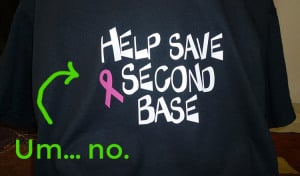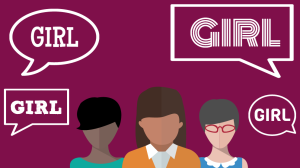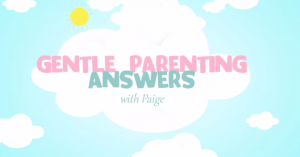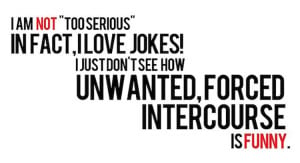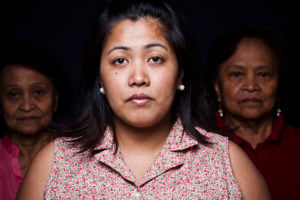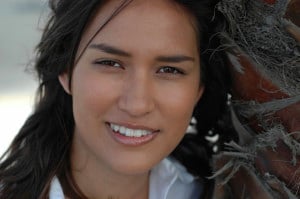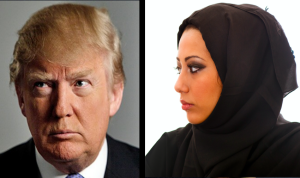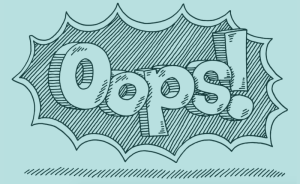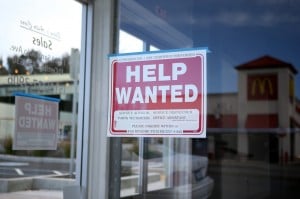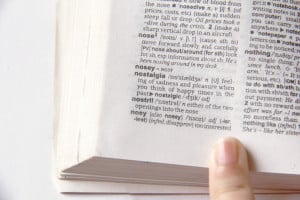
Source: WikiHow
It’s a common argument that those of us – all of us – who work in social justice movements face: the straw man of reverse oppression. Even within the in-crowd of people who are quote-unquote “socially conscious,” this argument pops up now and again.
“Yes, black women are beautiful — but I think what you mean is that all women are beautiful,” they say.
“But isn’t telling men to ‘sit down and shut up’ also sexist?” they ponder.
“But in the dictionary,” they start.
And we – seasoned veterans in the war against anti-oppression – know that the battle has already been lost.
It’s hard to convince someone that they’ve misunderstood a concept when their very (albeit misguided) understanding of the world depends on the existence of the falsehood in question.
However, it’s true that reverse oppression – like “reverse racism,” “female privilege,” and (so help me God) “cisphobia” – cannot possibly exist. Because the very nature of oppression won’t allow it to!
I don’t think that people who argue for reverse oppression are willfully ignorant; I think they’re just mistaken. And who can blame them? We’ve all internalized oppressive ideas and values.
We have to be able to forgive ourselves for that and, instead of berating ourselves, spend our energy working toward change.
Some people have just internalized the (oppressive) notion that the lived experience of oppression is freewheeling and available for everyone — uhh, and somehow enviable?!
And we so desperately, desperately need to break that down.
So let’s start here.
The Dictionary
Put it down. Close that web browser. And for those of you who I know are going to post dictionary definitions in the comment section before even reading the article, you— I don’t have anything to say to you. Just stop.
Merriam-Webster is not your friend today.
The dictionary, to begin with, is a really trite resource to use when arguing complex topics.
You can show me the definition of “plant” if you want to, but that sure as hell doesn’t make you a botanist. Similarly, your dictionary definition of “racism,” for example, doesn’t make you a scholar in sociology.
And I’m not saying that everyone in the social justice movement is a scholar – although, obviously, some of us are – but those of us who have done the hard work to unpack privilege and unlearn socialization are getting our information from the greats – not the dictionary.
The dictionary is not Kimberlé Crenshaw. The dictionary is not Derrick Bell or Patricia J. Williams or Mari Matsuda.
You want an easy, shallow definition of “racism” to endorse your unsupported viewpoint? Go to the dictionary. But if you want to apply a Critical Race Theory lens to a conversation around power and oppression, then go to the seminal works of the people above – or at least some secondary sources!
The dictionary is a great tool.
Hell, I use the dictionary all the time because I’m always confusing “insure” and “ensure,” and I always want to use fancy words without actually knowing if they make sense in context.
And that’s what the dictionary is there for – to give you a quick and dirty definition to work with.
But the dictionary has no depth.
The dictionary is younger me when I’d be asked to speak on issues that I only understood marginally, but wanted so desperately to have an opinion on: fumbling about, trying to make sense, but only having a paragraph – if that! – of information to go off of.
It just doesn’t cut it.
The dictionary will tell you that you can combine blue and red to get purple. But ask a visual artist to explain the concept of “purple” to you, and they’ll blow your fucking mind.
And you don’t think that a concept like oppression deserves that same respect?
Furthermore, I want to tell you a secret about the dictionary: It is, in and of itself, an oppressive force. All resources that deal with “the rules” of language are.
Although the oldest dictionaries date back to Mesopotamia (who’s surprised? Show me something that doesn’t date back to Mesopotamia), the first English dictionary was created in 1604 by a dude named Robert Cawdrey – a white guy.
And because I don’t want to bore the heck out of you with the history of the English language (although I surely will if you want me to), I’ll make a long story short:
Every milestone of the creation of the English dictionary was achieved by (yup) a white guy – in pursuit of a “standard of our language…in the superior sense,” which sounds like loaded language to me.
And I know that because this is a piece on the non-existence of reverse oppression, there are people out there moaning along the lines of “What’s so wrong with white men?”
So I’ll let the amazingly brilliant Audre Lorde explain why using a resource created by an oppressive force to detangle the concept of oppression makes zero sense: “The master’s tools will never dismantle the master’s house.”
The Hierarchy
Now that we better understand what oppression isn’t, let’s talk about what oppression is, then.
See, the problem with the dictionary definition of “sexism,” for example, is that it posits that sexism is “prejudice, stereotyping, or discrimination…on the basis of sex” or “unfair treatment of people because of their sex.”
Now, the cool thing is that the dictionary is starting to get hip to the notion that generally, sexism occurs against women (and I say “generally” not to infer that it is possible to be sexist against men, but rather that sexism also affects trans and gender non-conforming people) – and definitions are starting to reflect that.
But what the dictionary – and a lot of people who are making this argument – misses is that sexism isn’t just prejudice, stereotyping, and discrimination (although all of those things are definitely bad).
Sexism is a form of oppression.
If you think of it in the form of a hierarchy, you’ll see that yes, all people can experience stereotyping (assumptions that all people in one group are similar), prejudice (dislike toward a group based on those stereotypes), and discrimination (refusing access to resources based on that prejudice).
However, only oppressed people experience all of that and institutionalized violence and systematic erasure.
See, and that’s why it’s not possible to be sexist against men.
Because you can stereotype men. And you can be prejudiced against men. And you can also discriminate against men. And none of that is okay! But oppression – because it is institutionalized and systematic – is another level entirely.
Allow me to explain – by going back to piece that I wrote on thin privilege and a resource that I use therein.
“Oppression,” I write in that piece, “is a special kind of problem.” And there are four reasons why.
1. It Is Pervasive
It is woven throughout social institutions, as well as embedded within individual consciousness.
This isn’t about one person being a jerk to another. This isn’t about one woman making “misandrist” jokes on Twitter. This isn’t about that one time you saw a black cop pull over a white guy for seemingly no reason.
This is about a cultural value that is systematic in that it exists within the very fabric of our society and is practiced (albeit often subconsciously) in the very institutions we’ve been taught to trust – you know, like the exclusive, white-cis male-written dictionary.
This is about an attitude that is so deeply embedded in our minds that we act on it without thinking.
This is about a force that surrounds us and influences our relationships to ourselves and others.
For example, watch what happens if you make a “sexist” joke about men. How many men will run to defend that #NotAllMen do that thing? But if you make a sexist joke about women, how many of those men are running to women’s defense?
Hell, how many women are running to women’s defense? And how many of the few women who do are then told that they “can’t take a joke?”
People are more willing to be complicit around sexist jokes because the cultural belief that women are something to laugh at is widespread.
2. It Is Restrictive
That is, structural limits significantly shape a person’s life chances and sense of possibility in ways beyond the individual’s control.
Check out these examples of male privilege, white privilege, Christian privilege, straight privilege, and thin privilege.
By virtue of not having access to these privileges, the lives of oppressed people are limited.
Women, for example, are likely to be brought up to believe that their worth is tied directly to their beauty – that no matter how smart, successful, or accomplished they are, their lives are still restricted to their sex appeal.
Want a really great example of the ways in which oppressed people’s lives are restricted? Take a look at the school-to-prison pipeline, just one of many terrible ways in which the prison industrial complex limits the lives of people of color.
Meanwhile, in most states, same-gender couples still can’t adopt children without going before a judge for approval – which is entirely out of their control.
And in many cases, trans and gender non-conforming people can’t use a public bathroom safely, securely, and without question. Talk about restriction!
I could go on, but you get it now, right?
3. It Is Hierarchical
That is, oppression positions one group as “better” than another.
Dominant or privileged groups benefit, often in unconscious ways, from the disempowerment of subordinated or targeted groups.
As a thin person, for example, and therefore someone who isn’t oppressed by fatphobia, this can look as simple as not being passed over as a dating prospect.
Have you ever perused the Craigs List personal ads section? I have. (I swear it was for a grad school assignment.) And I don’t remember ever once seeing a “NO THIN CHICKS” disclaimer. But “No BBW?” You’ll find that everywhere.
That’s a way that I benefit from fat discrimination.
You can also look at the ways in which colorism (or shadeism) affects communities of color if you want to see an oppressive hierarchy at play.
Because of white supremacy and the lingering impacts of colonization, people with lighter skin are considered more attractive – which also allows them more access to other positive associations, like wealth and intelligence.
In order for one group to be on top, there are many others who have to fall underneath.
That is oppression.
4. The Dominant Group Has the Power to Define Reality
That is, they determine the status quo: what is “normal,” “real,” or “correct.”
Take my dictionary example from earlier: If white men are in charge of defining the confines of our common language, then they are in charge of that aspect of our reality.
Another huge way that this works is in a lack of diverse media representations.
If you are a disabled child growing up and watching television, and all you’re ever exposed to are able-bodied people as the norm, then what does that inform you about your own existence?
Further, if men are in control of the media (and they are – over 95% of clout positions in media are held by men), then what does that do to stories about women?
If narratives about women are being controlled by men, is what’s being told about women really accurate — or is “correct,” “normal,” “real” womanhood being defined (and confined)?
One group having the opportunity to define the world is a lot of power. And power is the flipside to oppression.
***
When people in power are stereotyped or discriminated against – awful as that is – it isn’t the result of subjugation, regardless of what the dictionary tells you. Those negative attitudes toward privileged people aren’t pervasive, restrictive, or hierarchal.
That is, they aren’t losing out on anything just because someone’s words, actions, or beliefs were hurtful – or even harmful.
And that’s a significant difference.
Oppression cannot exist without a force of power behind it. And this is exactly why the idea that a dominant group being subjugated is so laughable – because what force is driving it?
We have to talk about the ways in which people conceptualize their experiences. But when we attempt to do this by drawing false equivalences between experiences, we’re failing at understanding nuance, and that isn’t really helping anyone – not even the straw man.
[do_widget id=”text-101″]
Melissa A. Fabello, Co-Managing Editor of Everyday Feminism, is a sexuality educator, eating disorder and body image activist, and media literacy vlogger based out of Philadelphia. She enjoys rainy days, Jurassic Park, and the occasional Taylor Swift song and can be found on YouTube and Tumblr. She holds a B.S. in English Education from Boston University and an M.Ed. in Human Sexuality from Widener University. She is currently working on her PhD. She can be reached on Twitter @fyeahmfabello. Read her articles here and book her for speaking engagements here.
Search our 3000+ articles!
Read our articles about:
Our online racial justice training
Used by hundreds of universities, non-profits, and businesses.
Click to learn more






